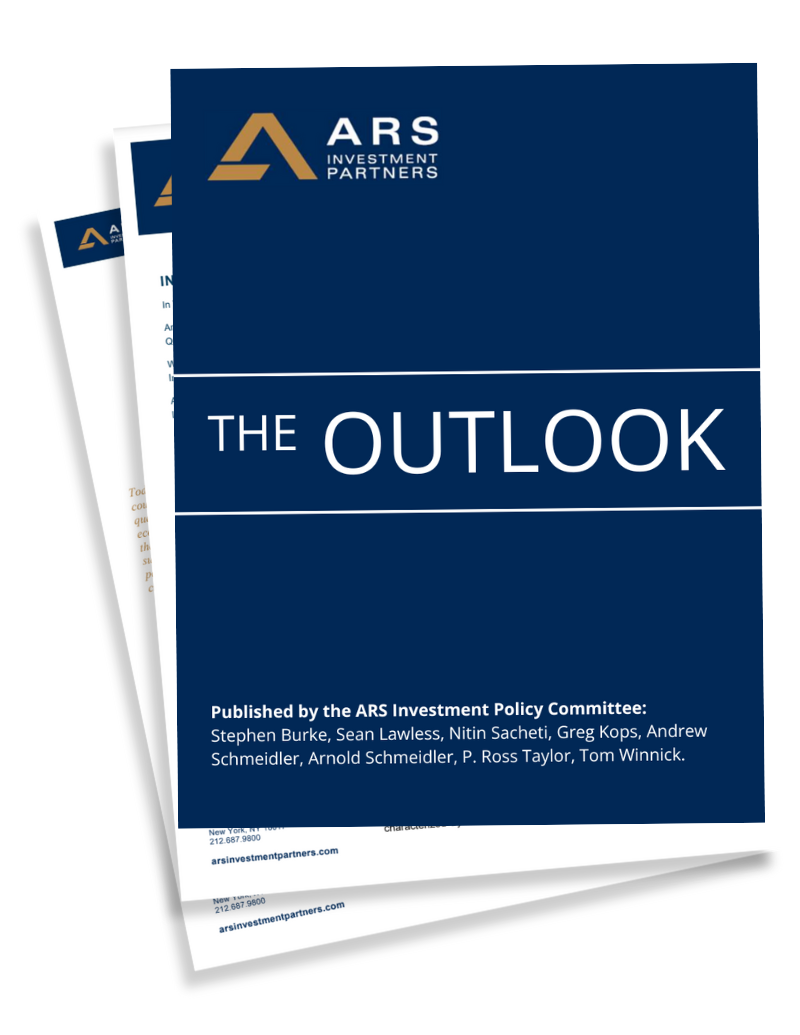Download Outlook Now
The World at a Historic Inflection Point
The decade-long party involving ultra-easy fiscal and monetary policies has come to an end as concurrent food, energy, security, and cost of living crises are reshaping our world. The days of the Fed rescuing markets are over and have been replaced by policymakers working to rapidly tighten economic conditions to bring down inflation. As a result, the world and the U.S. monetary regimes are returning to a more normalized interest rate environment after an extended period of negative and zero interest rates.

Executive Summary
Valuations are undergoing the most meaningful re-adjustment process since the Great Financial Crisis to reflect current interest rates and inflation rates. Under present conditions, the global economy will likely experience a recession in the coming quarters with Europe and China among the greatest areas of financial stress. The U.S. remains the most attractive developed market economy and a magnet for capital flows from the rest of the world, but its economy will be challenged as well. The pandemic, its accompanying supply chain problems, and Russia’s attack on Ukraine continues to remake our world and accelerate the rate of change for so many aspects of society. It remains unclear just how much things will change as we still do not know how everything sorts out.
Nevertheless, what is clear is that the global economy is experiencing more persistent cost pressures and reduced economic activity while policymakers have less bandwidth to support their economies than they have had in the past. Therefore, the adjustment process will be painful for the most vulnerable governments, companies, and individuals.
Outlook Highlights
Return to Normalized Interest Rates
After years of negative to zero interest rates, the world and U.S. monetary regimes are shifting towards normalized interest rates, a transition driven by the need to control inflation and stabilize economic conditions.
Global Economic Recession
With the rapid adjustment of monetary policies, the global economy is poised to face recessionary pressures, with significant financial stress expected in Europe and China as they navigate these changes.
U.S. as a Capital Magnet
Despite global economic challenges, the U.S. continues to attract substantial capital flows, maintaining its status as the most attractive developed market economy. However, it faces challenges that may test its economic resilience.
Societal and Economic Transformations
The ongoing effects of the pandemic, coupled with Russia’s conflict in Ukraine, are accelerating changes across many aspects of society, influencing everything from supply chains to geopolitical relations, with uncertain outcomes.
Our Perspective
In this new economic era, market participants must adjust to an environment of heightened uncertainty and volatility. The end of ultra-easy money policies means investors need to be more discerning and disciplined. Despite current challenges, the recent pullback in global equity markets presents opportunities to acquire leading businesses at favorable valuations. Investors should focus on sectors and companies poised to benefit from the current economic conditions and legislative changes, adjusting their strategies to navigate the complexities of today’s global financial landscape.
Disclaimer
The information provided in this report is for informational purposes only and is not intended as investment advice, or an offer or solicitation for the purchase or sale of any financial instrument. This report is provided on the condition that it does not form a primary basis for any investment decisions. The opinions and analyses included in this report are based on current market conditions and are subject to change. ARS Investment Partners, LLC will not be responsible for any investment decisions based on this report. Please consult with a qualified financial advisor before making any investment decisions.
Want More of The Outlook?
Sign up to receive The Outlook — our timely newsletter featuring our investment and economic thinking — and highlights from our latest market insights will be emailed directly to your inbox.









